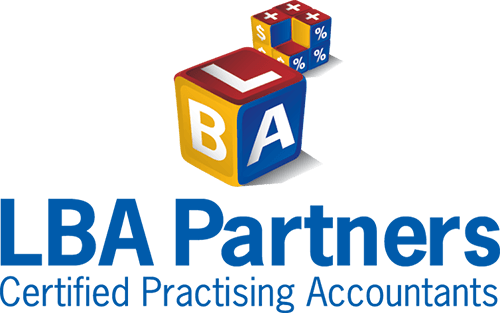Here's our latest newsletter, if you would like to follow up any of the information please contact Linda or Grahame
P r a c t i c e U p d a t e
May 2014
Tax amnesty for overseas tax dodgers – Project 'DO IT'
The ATO has announced an amnesty for taxpayers with offshore assets or income to voluntarily come clean by 19 December 2014.
The ATO says that its Project 'DO IT' (i.e., 'disclose offshore income today') provides a last chance opportunity for those who haven't declared their overseas assets and income to come back into the system.
Under Project DO IT, taxpayers:
- are encouraged to disclose omitted income or over-claimed deductions relating to their offshore activities;
- will not be investigated or referred for criminal investigation by the ATO; and
- will generally only be assessed for the last four years.
However, until the taxpayer comes forward, the ATO said its normal compliance activities will continue and, if the taxpayer is detected first, they will not be able to benefit from the amnesty.
ATO takes over Super Clearing House
The ATO has taken over responsibility for the Small Business Superannuation Clearing House.
The Department of Human Services was previously responsible for the free online clearing house service that helps businesses with 19 or fewer employees pay superannuation contributions for all staff in one transaction.
Editor: If you would like to discuss registering with the clearing house, please call our office.
Federal Court overturns AAT excess contributions decision
A Federal Court ATO test case has overturned an Administrative Appeals Tribunal (AAT) decision that there were 'special circumstances' that allowed an excess contribution to a super fund to be disregarded.
The case involved husband and wife taxpayers, Mr and Mrs Dowling, who were primarily concerned with Mr Dowling qualifying for the age pension when he turned 65 years of age.
To be eligible for the pension, Mr Dowling withdrew $293,895 from his super fund, tax-free (as he was then over 60 years of age) and contributed it into Mrs Dowling's superannuation fund in the 2009 income year.
In the 2011 income year, Mrs Dowling read in the media that superannuation benefits either may not be taxed at all, or could be minimally taxed, when paid to the beneficiaries of her estate upon her death.
To secure this favourable tax treatment, Mrs Dowling withdrew $240,933 from her superannuation account on 30 August 2010, and re-contributed $200,000 of it as a personal non-concessional contribution.
Mrs Dowling did not seek professional advice from a tax lawyer or an accountant, and had inadvertently made an excess contribution to her superannuation fund (Editor: As most taxpayers are currently only allowed to contribute $450,000 in a three year period).
The Federal Court found that there were no 'special circumstances' and that the taxpayer was liable for excess contributions tax of more than $20,000.
Editor: Unfortunately, as the Court took pains to point out, inadvertently falling foul of the law doesn't form 'special circumstances'. Ignorance of the law "may be bliss", but it can also be costly.
If you'd like to discuss your superannuation situation and how you can maximise your retirement position, please contact our office.
ATO data matching projects
The ATO has announced that it will conduct the following three data matching projects:
- Online selling – the ATO will obtain details of online sellers who sold goods and services to the value of $10,000 or more in the 2011/12 and/or 2012/13 financial years via online selling sites.
It will collect data relating to between 15,000 and 25,000 individuals for 2012 and 2013 from eBay Australia & New Zealand Pty Ltd.
- Childcare Service and Educator Payments – the ATO will acquire details of more than 12,000 taxpayers receiving taxable Childcare Service and Educator Payments from the Department of Education for the 2011/12 and 2012/13 financial years.
- Qld State Gov't payments and grants – the ATO will acquire details of more than 5,000 individuals receiving taxable payments and grants from the Queensland State Government for the 2010/11, 2011/12 and 2012/13 financial years.
Tax Commissioner's proposed 'remedial power'
Treasury and the ATO have established a working group with the private sector to look at creating a 'statutory remedial power' for the Tax Commissioner.
This remedial power would provide a mechanism for resolving unintended and anomalous outcomes in the tax law more quickly than is possible through legislative amendment.
The power may also have a broader benefit for the tax system, by allowing minor technical corrections that wouldn't otherwise happen.
Once the working group finalises its considerations, Treasury will advise the Government on whether such a power is appropriate and, if so, what form it could take.
The ATO has said that it is interested in hearing thoughts from the general public.
ATO's new initiative to resolve tax disputes
The ATO has announced an in-house facilitation process for taxpayers to resolve tax disputes.
Tax agents and their clients are now able to use this service in audits and objections involving indirect tax, small business and individual taxpayers, and private groups and high wealth individuals.
In-house facilitation aims to:
- resolve less complex disputes more quickly;
- provide certainty for tax agents and their clients; and
- avoid unnecessary litigation.
The ATO says that it has trained facilitators in each State and across all areas of the Office.
These facilitators are independent of the audit or objection and will not make a decision, as their role is to bring the tax agent, their client, and the ATO case officer together to discuss areas of disagreement in an open and transparent way.
What is 'facilitation'?
At a facilitation, taxpayers will have the opportunity to present their case and their view of the tax issues and facts in dispute.
The facilitator merely guides the parties through the process and will help them ensure that there are open lines of clear communication, and that messages are correctly received.
Taxpayers are not obliged to participate in facilitation if it is offered, but if they choose to participate and the dispute is not resolved, their rights of review and appeal are not affected in any way.
Please Note: Many of the comments in this publication are general in nature and anyone intending to apply the information to practical circumstances should seek professional advice to independently verify their interpretation and the information's applicability to their particular circumstances.
Management Consulting
We have the know-how and experience to offer advice that helps you run your business more effectively.
Self-Managed Superannuation Funds
At LBA Partners we provide the professional advice you need to manage your own fund and greatly simplify the process for you.



